(Un)Popular Opinion: Why Your Trail Family Sucks
Hiking the Pacific Crest Trail, I meet a hiker from Australia near the turnoff for Mount Whitney. This hiker appears to be experiencing something bordering on an existential crisis. The origin of her plight? Whether she should detour from the PCT and hike to the summit of Mount Whitney.
First, some context. Mount Whitney, the highest point in the Continental United States, is 14,505 ft / 4,421 m tall. It’s considered a bucket list item for many and permits to hike Whitney (from the more accessible east side) are distributed via lottery each year. The PCT passes Whitney to the west which means you do not need to enter a lottery should you wish to hike to the summit – you just go hike to the summit.
It’s approximately 17 mi / 27 km roundtrip from the Pacific Crest Trail to the summit of Mount Whitney. This may sound like a lot, but when you consider that PCT thru-hikers reaching this point have already hiked nearly 800 mi / 1,287 km, it’s a day-long detour at most (usually). Basically, the Whitney summit is a highly coveted place accessible only to those who hike in the off-season, hike in from the west (which generally means a multi-day backpacking trip), or who are lucky enough to win a permit in the lottery.

Back to our Aussie friend. I tell her she should most definitely hike to the Whitney summit since 1) she lives in Australia and probably won’t have another chance to summit this peak for what could possibly be the rest of her life, and 2) she clearly wants to summit. What are her reasons for not wanting to summit? She “doesn’t want to get separated from her trail family.”
My response to her? “Who cares about your trail family? You’ll either catch up to them and it will be super exciting, or you’ll make new friends once you get back on the trail after Whitney.” She continues, nearly in tears, about her trail family. I clearly can’t help this person; I leave her with some parting words and continue my hike.
Before we get into things, a word of caution, dear reader. I’m going to do my best to not sound like an old-timey “back when I hiked the PCT” hiker. I acknowledge this is probably exactly how I will sound, but that’s not the point of this article. If you aren’t willing to allow me space enough to explore the pitfalls of trail families, I encourage you to save yourself some rage and stop reading. I promise things will not get better for you as this goes on.
The idea of a “tramily” – the only time I will use the word since I both hate it and find it incredibly off-putting (like how people feel about the word moist) – or trail family, begins innocently enough. Friends with whom you hike whatever trail it is you’re hiking, become what you think of as your trail family. However, trail families can quickly devolve into something akin to schoolyard cliques and serve more as a way to exclude than to include.
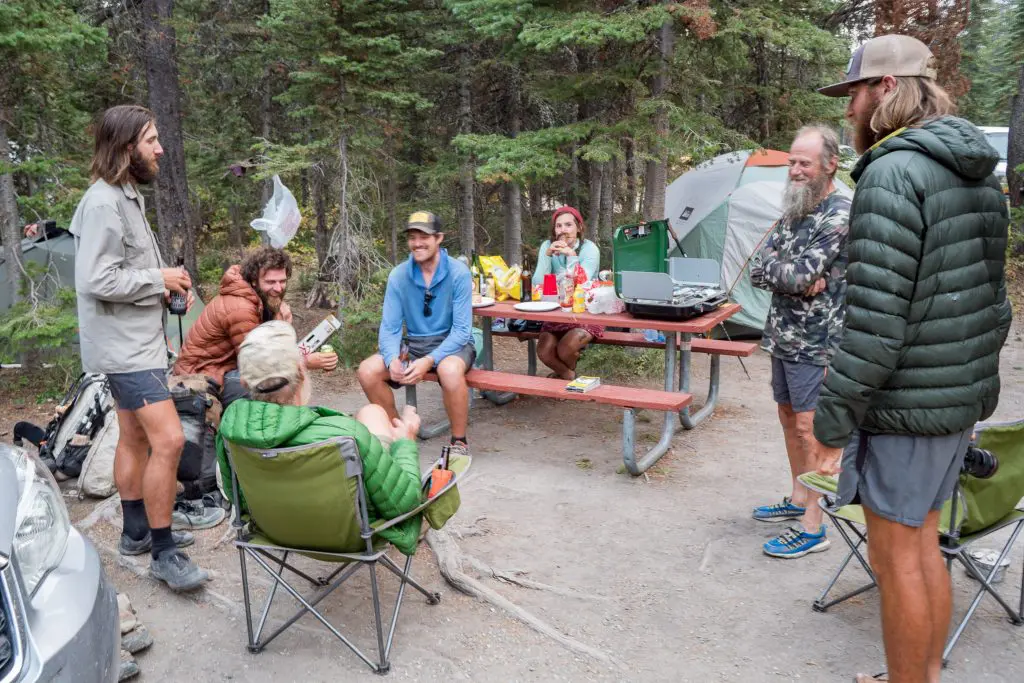
When I first hiked the Pacific Crest Trail (or the Continental Divide Trail, for that matter), I would walk into a bar, restaurant, hotel lobby, or gear shop and immediately be able to recognize the other hikers present. Approaching one of them and saying “hello” would result in a much different outcome than approaching a stranger and saying “hello” outside the context of a thru-hike. The shared experience of the trail immediately bonded us and gave us a common ground and understanding of one another.
The second time I hiked the PCT, I would walk into a restaurant or bar and find places populated by many fellow hikers – all sitting at tables alone, waiting for their trail families to arrive. It was sad.
There were times (during my second PCT hike) I approached groups of hikers on the trail to say hello (I typically say hello to everyone I see) and was met with literal silence. I usually resolve these situations by saying something along the lines of, “okay, good talk” and continuing on my way. This happened multiple times and each time it was utterly baffling.
Sidebar: someone from one of these groups realized, after the fact, she recognized me from Halfway Anywhere and sent me a message apologizing for her group’s behavior (confirming I do not imagine these things and that they are as awkward as I think).
Many thru-hikers appear to have adopted the idea that a primary objective of a thru-hike is to find a trail family. These people also believe that a trail family is an immutable element of the trail from which there can be no escape (less you get off-trail). Yes, the trail is a fantastic place to make friends, but this idea of being committed to hiking the entire trail with your trail family (I even hate the term trail family) is foolish. The goal of a thru-hike is a lot of things, but finding a trail family to blindly commit yourself to should not be one of them.
You would have to make a concerted effort on a thru-hike to not make any friends. “Finding your people” on a thru-hike happens as naturally as being able to casually hike (and be disappointed in) 20 mi / 32 km days as you get further into your thru-hike. It’s going to happen. If it doesn’t, it’s likely because you did something to prevent it. Making friends and finding people to hike with – particularly on a trail as popular as the Pacific Crest Trail – is not a difficult task. And guess what! In all likelihood, there are dozens of different people (or even groups of people!) with whom you would get along great.
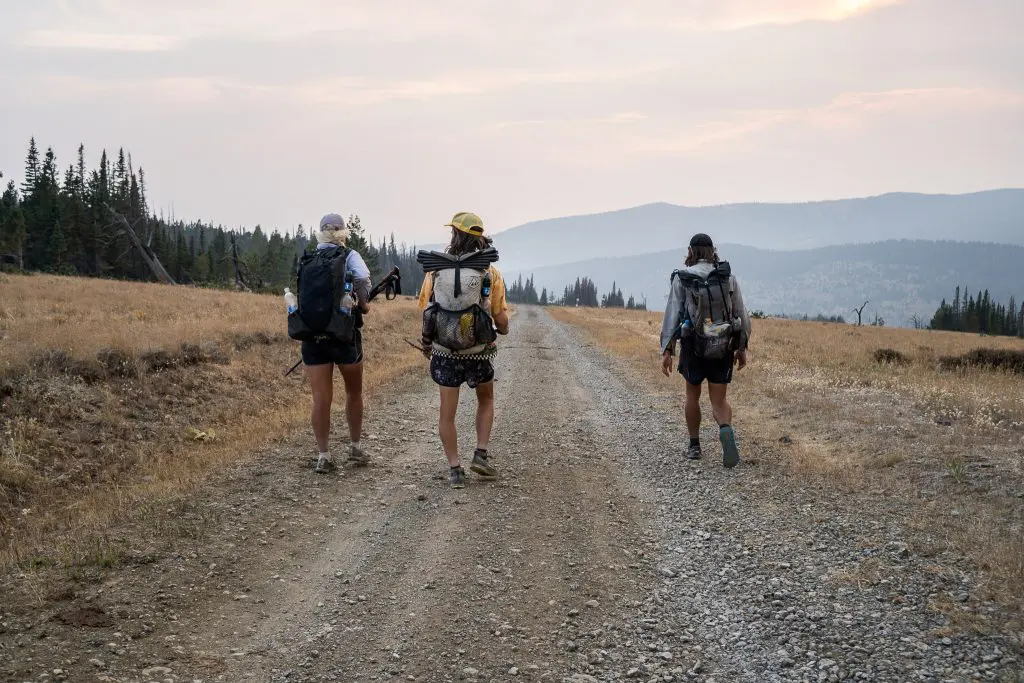
If you respond to someone on the trail asking you how you’re doing with something akin to, “good, but I’m trying to catch up to my trail family,” then you are essentially telling that person you have zero interest in getting to know them and that they are not worthy of being a part of your hiker group. Are there terribly shitty people on the trail who should not be a part of anyone’s group? Absolutely. I’m not advocating that you be everyone’s friend and stop to engage in hiker small talk with everyone you pass. However, putting up blinders to everyone not included in your group is not the solution (unless you’re just trying to crush miles all day every day in which case you probably don’t have a group).
The issue with this worship of the trail family is not the fact trail families exist, but rather the way people decide to act in light of the fact they exist. Like our Australian friend from earlier. What I’m suggesting is that you not be so committed to the idea of having to stick with the people you’ve decided are your trail family and that you not create this in-group/out-group mentality on the trail. I’m not saying that you should not be out on the trail to make friends, you should absolutely make friends. However, I am saying that you shouldn’t decide after you make three friends that you have met your friend quota and no longer have any interest in engaging with or opening yourself up to anyone else experiencing the trail alongside you.
We can even visit the tired (but accurate) hiking cliché of hike your own hike (HYOH). This could be applied in one of two ways here. You could say you should hike your own hike and not compromise to “stay with your trail family”. You want to press on and your trail family wants to go to town? Time to be grateful for the time you had together and hike on. Alternatively, you could say, “Get fucked, Mac, hike your own hike and stop whinging about trail families.” To which I would say, touché (and why so harsh?) Again, I’m not telling you that you shouldn’t make friends on the trail and stick with them and hike with them. What I am saying is that these friends should not force you to compromise on what you personally want to get out of your hike nor should they cause you to treat hikers outside your bubble as the enemy.
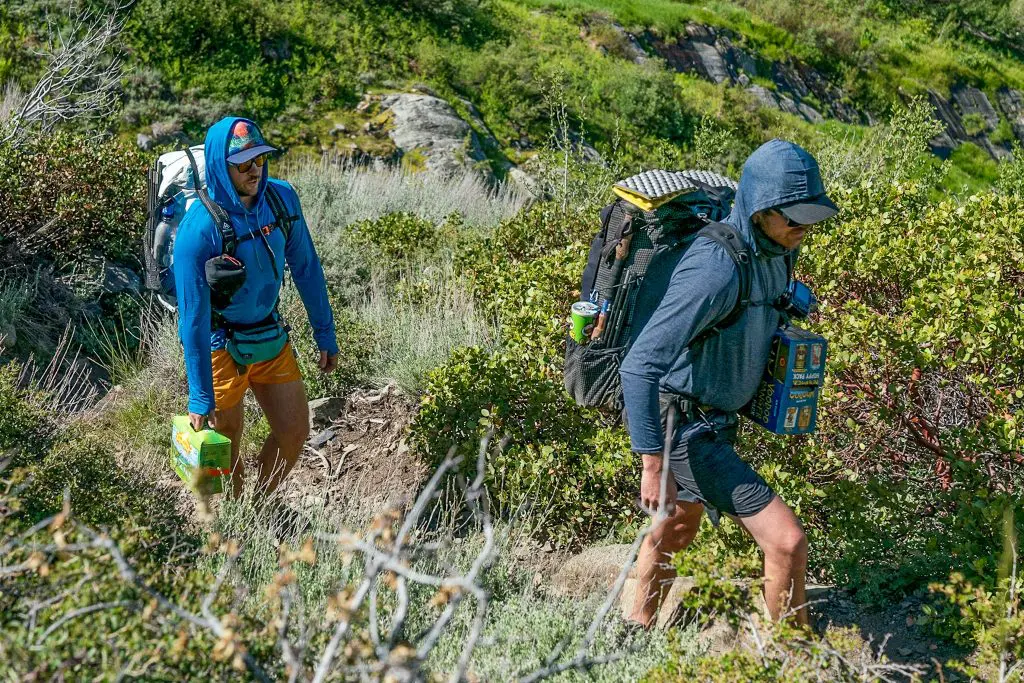
My vision for how this article would go was different than how it’s turned out. Things are a lot more succinct and reasonable in my head, it would seem. I clearly have a lot of feelings about this. Hopefully, you get where I’m coming from and what I hope to say with everything laid out here. As always, I’m happy to hear your thoughts on the subject in the comments below.
But just in case there are any lingering doubts, here’s my attempt at summarizing what I’ve attempted to make a case for here.
- Trail families are fine taken at face value but are trash when they become cliques
- The trail is a shared experience between you and all the other thru-hikers; you’re all going through the same thing and there’s no us vs. them – it’s all “us”.
- You should not compromise on your own hike because of the will of your trail family (hike your own hike, etc.)
- Don’t be shitty to people on the trail
And please stop saying, “happy trails”.
Love,
Mac
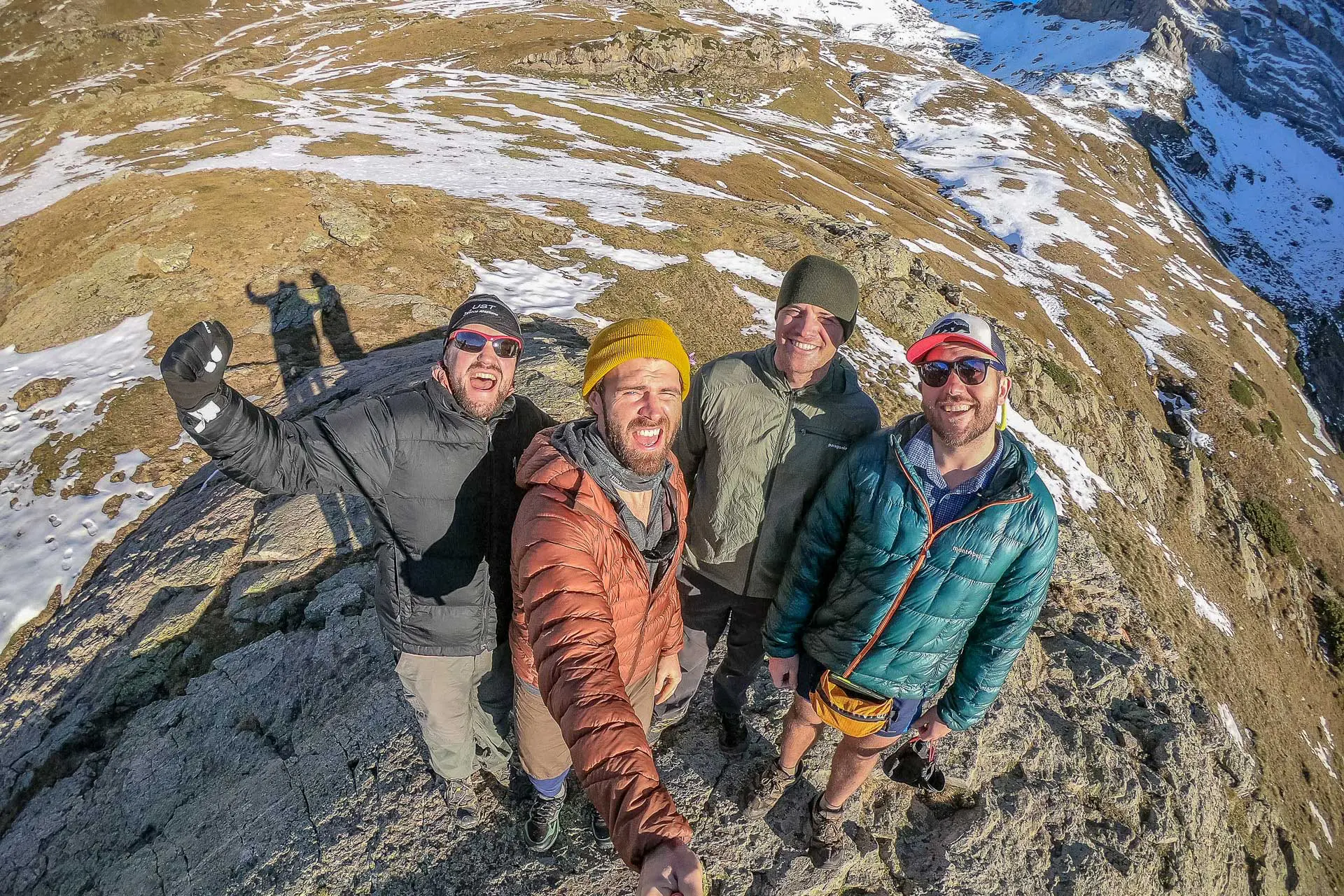
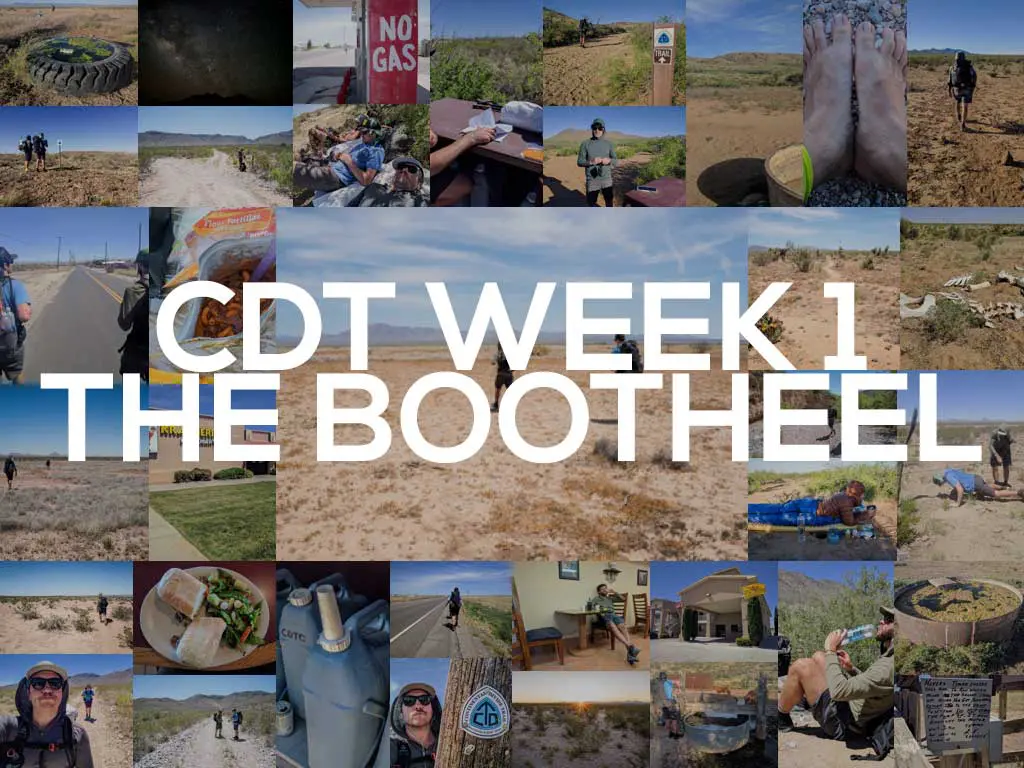
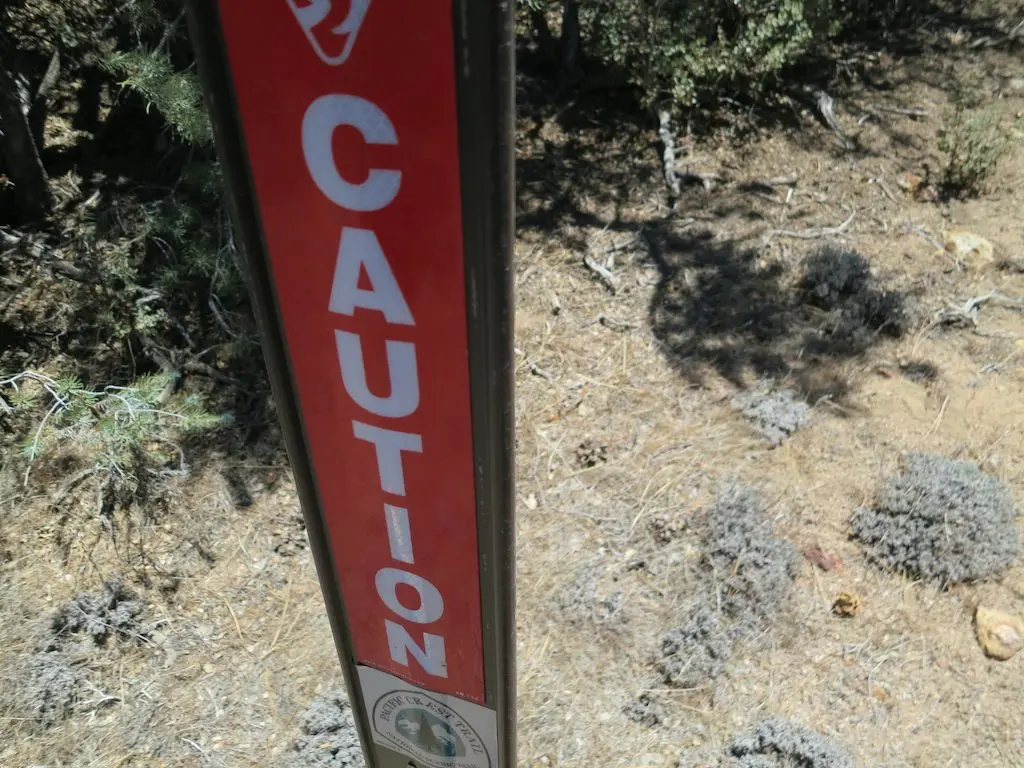


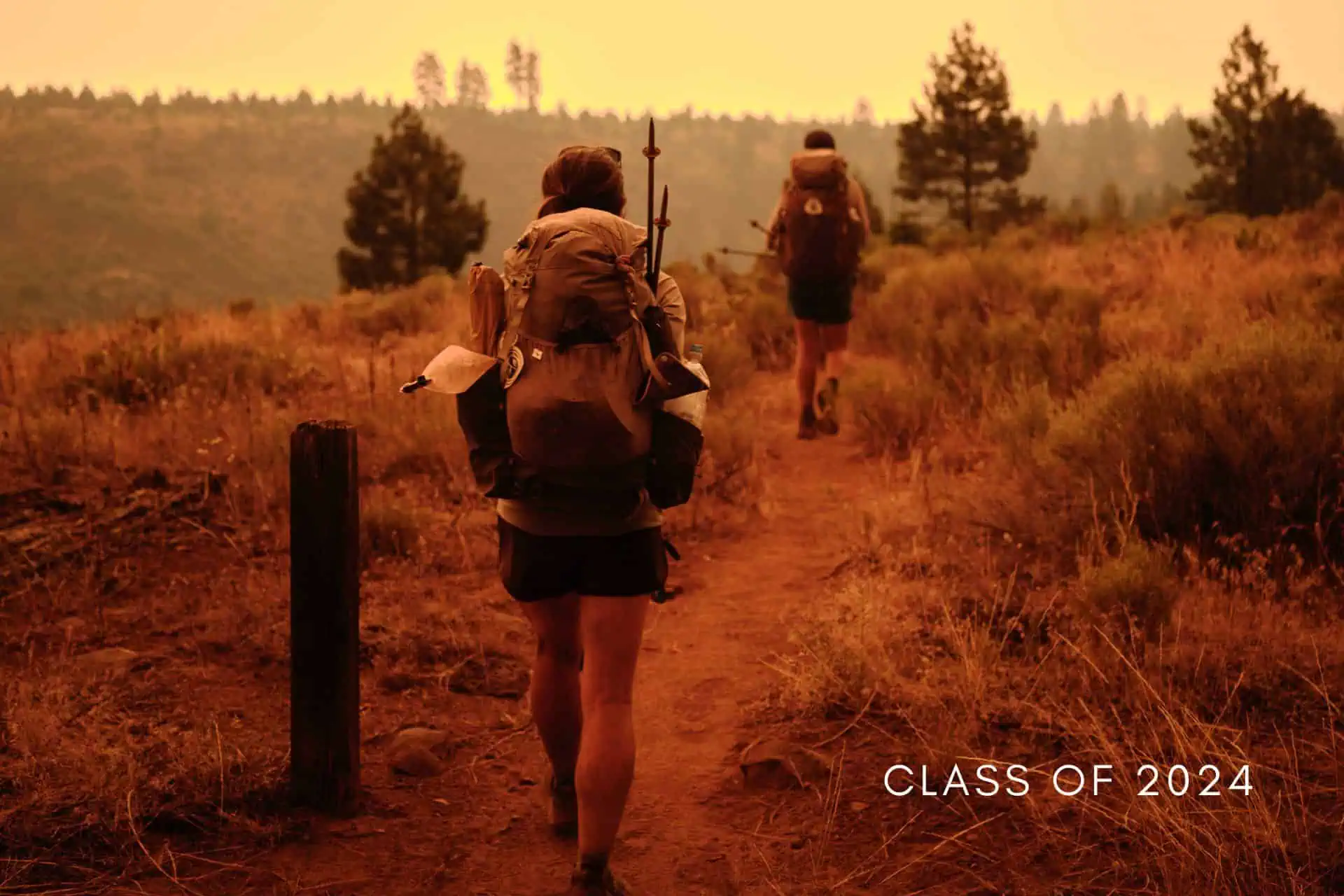
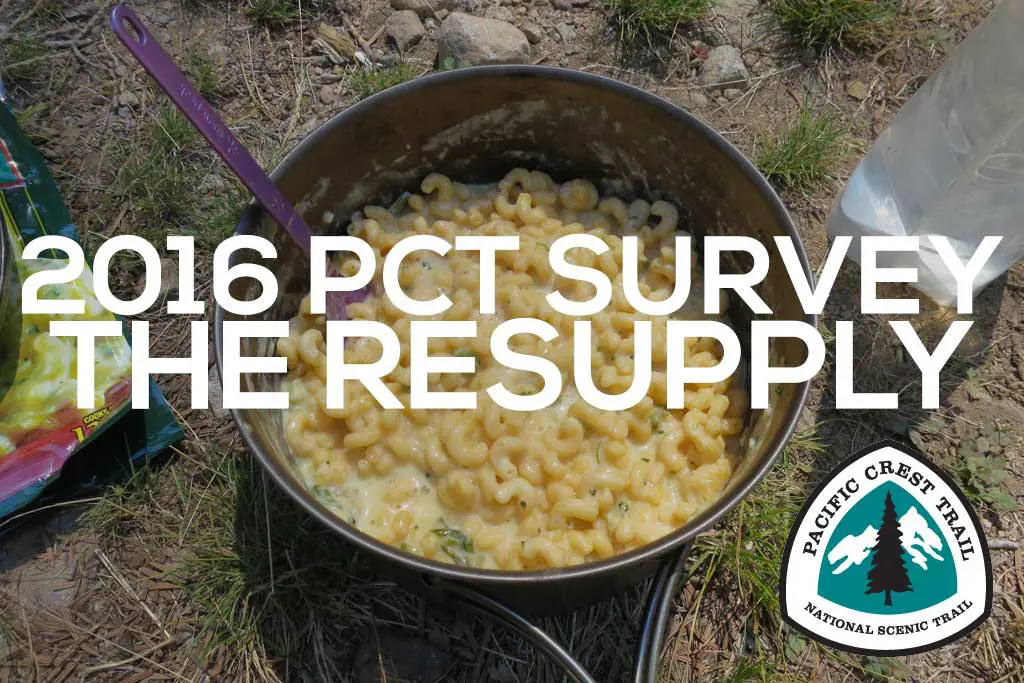
Guess I’m late this discussion party, but 100% agree. Didn’t realize that avoiding the tr@mi1y madness was one of the benefits of going SOBO on the AT, (one of the great trails!) Met a couple of cliques NOBO that were very closed up.
Had several friends that I bumped into from time to time the whole way south.
In the military you form some tight bonds, but once you’re out the tend to fade. Too bad these folks don’t understand that.
Thanks for opening the conversational space.
Thanks for sharing!
100 agree %!
I was a bit shocked at how quickly folks in the desert were latching on to people as their “tramily” so quickly! I had sort of an extended trail family made up of lots of wonderful hikers going around the same pace as me, but we were making our own decisions about mileage and resupply and dialing in our own personal hiking preferences. It made for a great laid back experience of making friends, and by the time I got to the Sierra, a group of us committed to sticking together for that section for safety. I remember rolling into camp though past Deep Creek Hot Springs in the desert and greeting this group camped there and getting those blank stares. It was so cringy and high school. They were all attractive 20-somethings and it literally felt like approaching the popular kids’ lunch table. So petty.
It really is strange how people make finding a trail family a priority of their hike. If you’re looking for a trail where everyone is still friends, I suggest the Hayduke :)
This doesn´t exist at all in Europe. I hiked from the Black Sea to the North Sea and hardly met other hikers. I had an Online Trail Buddy, who walked the opposite direction. I enjoyed hiking alone and cannot even imagine this group building.
I think stating it doesn’t exist in Europe is too generalized based on a single hike, but I understand your point.
Hey Mac, I really enjoyed your article. I’m probably the oldest guy to subscribe to your blog or newsletter. I’m 78! I had no idea there were things like trail angels or Trail families and I found your descriptions very enlightening. I don’t get up into the Sierras as much as I used to, it’s a little harder, setting up your tent and sleeping on the ground when you’re 78.
I’ve never been a thru-hiker, but I have done most of the JMT over the years. And I’ve always enjoyed meeting people on the trail. That’s one of the benefits of being up in the mountains, and away from civilization.
Anyway, thanks for the great article and also all of your research on camping equipment. I think it may be time for me to get rid of my old Kelty stuff and buy some new equipment so you’re analysis was very helpful.
Thank you, Jack! Happy to help!
I’ve actually started experiencing that “what the heck” reaction a lot when I say hi to groups of 20 somethings pretty much anywhere. Out in the woods, at salsa dances, in the crowd at music festivals. It is awkward as hell and makes it insanely difficult to meet new people. ¯\_(ツ)_/¯
https://media.giphy.com/media/piHW8pZr1dw64/giphy.gif
Best to just not waste time on those people. Life is too short, and they don’t know what they’re missing out on.
Perhaps you just needed a shower before introducing yourself Mac?
There was meant to be a winking emoji after that comment. Oh well. Brit humoUr is no laughing matter!
I would hope that my wilderness stank would lend me some credibility in these moments.
I didn’t experience this on the PCT–perhaps because we (my husband and I) did it in sections and primarily before it became a “thing.” But, I did experience this on one of the less well-known Camino routes in Europe. For weeks, we hardly had seen anyone. Then, as we neared the end of our trek, we ran into some groups that had only been on the trail a couple of days. After so much time pretty much alone, I was happy to see others. However, they snubbed us, clung to their groups, and hardly acknowledged we were there. Not playing nice!
But maybe they were making silent pilgrimages?
I hiked part of the CDT southbound this summer and in East Glacier I met some really great people and looked forward to hiking with them. But what happened was some of them formed groups immediately and they hiked a lot faster than I was able to, so I didn’t join their group and didn’t hike with them. They took more days off than me so I kept running into them, which was fun. Being able to reunite and share stories is great fun. After a while though I could see that some of them were getting injured, probably because the injured members would have to run in order to keep up with the leader of the group. One of the members of their group looked exhausted, and he would say things like “I don’t know what our plan is, I just do whatever they decide.” This didn’t seem to me to be an appealing way to hike. On the other hand, I was very much alone almost all the time and I didn’t find that to be the most appealing way to hike, either. I also became a member of a small group for a little while and the clique thing seemed really weird. Our group had a leader and he would try to get us to feel like we were better than those other groups. I didn’t understand why. Was it to keep any of us from leaving? In the end our group didn’t stay together. I was too old to keep up with them and our leader was feeling his oats and wanted to do 40 and 50 mile days. I don’t know what my point is but it seems groups in general are kind of degrading the experience compared to how it used to be before that awful word “tramily” existed. Back before then we all hiked sort of alone, sort of together, moving in and out of each other, all congregating at water sources and trail towns to share tales and gossip. You knew everybody.
Spot on, Piper!
Great post. I enjoy reading hiking blogs that challenge my view instead of affirm it. I had a great experience being a part of a group like this on my hike in 2020, but as a middle-aged hiker, I’ve also been on the outside of groups who shunned me completely, or worse, treated my like a second class citizen. This blog really got me thinking. Thanks.
Happy to hear it! There are a lot of different narratives and opinions out there and it’s sometimes productive to explore ones we weren’t entirely aware (or even supportive) of.
“you should do this.. you shouldn’t do that…” Hey, people should do whatever they want
If only there was some sort of saying that specifically means this within the hiking community.
I believe you said it best Mac “hike your own hike”:)
i enjoyed being 2nd cousins to quite a few tramilies on my hike. it was the happy medium between lone wolfing it and being in a tramily.
I’d be able to camp with peeps on the regular, but still come and go as I please and skip out on tramily drama, which got real old real fast.
then again, I didn’t really see anyone be actively exclusionary as described in the article. if so that’s incredibly lame and sorry for those who encountered
The second cousin is a good level of relationship.
I was hiking with a group of about a dozen people within a day or two of each other and EVERYONE, minus me, decided to ditch one of the group at a resupply. It was like being in grade school again and that lack of honesty and integrity was disgusting. I immediately left that group and hiked on with the person that was ditched.
To add to this baffling situation, when I saw those group members later down the trail they asked why I didn’t stick with them. Some of them expressed regret, but it was in a way that they wanted me to validate their poor decision.
Thru-hiking and adulting are not mutually exclusive activities. Good for you, for making the decision you felt was right.
Funnily enough, I often find the friendliest and most interesting people are the ones hiking mostly alone. Not coincidently, they’re more independent generally, less inclined to group-think and less likely to be 22. One should never join a club that will have you as a member. Turns out I have lots of thoughts on this topic too!
So I should only try to join clubs that won’t allow me as a member? Like the Girl Scouts?
Maybe if you shave they won’t notice the difference ?
Excellent idea. I will try this and report back.
Great content! Keep up the good work!
You got it!
One of the things about trail culture/life is its impermanence. Knowing that, understanding that key fact about living your life on the trail and how it effects EVERYTHING is crucial to living your best life on the ribbon.
Making friends on the trail is awesome. Being shitty to people who aren’t (yet) your friends is not.
Right on. Thank you.
You’re welcome.
Oh, I forgot to say, I also hate the portmanteau word “tramily”
You are not alone, friend.
I completely agree. Sticking with the same small group of people to the exclusion of so many others for about five months just seems …. narrow-minded.
I don’t see anything wrong with sticking with people if it works for all of you, just don’t be a dick to anyone outside your small group.
Well said! It’s sad to think you have to change your plans because of a group of people. Your goals will never be met if you rely on others.
But you have to rely on others to provide stable platforms as you step on them on your way to the top, right?